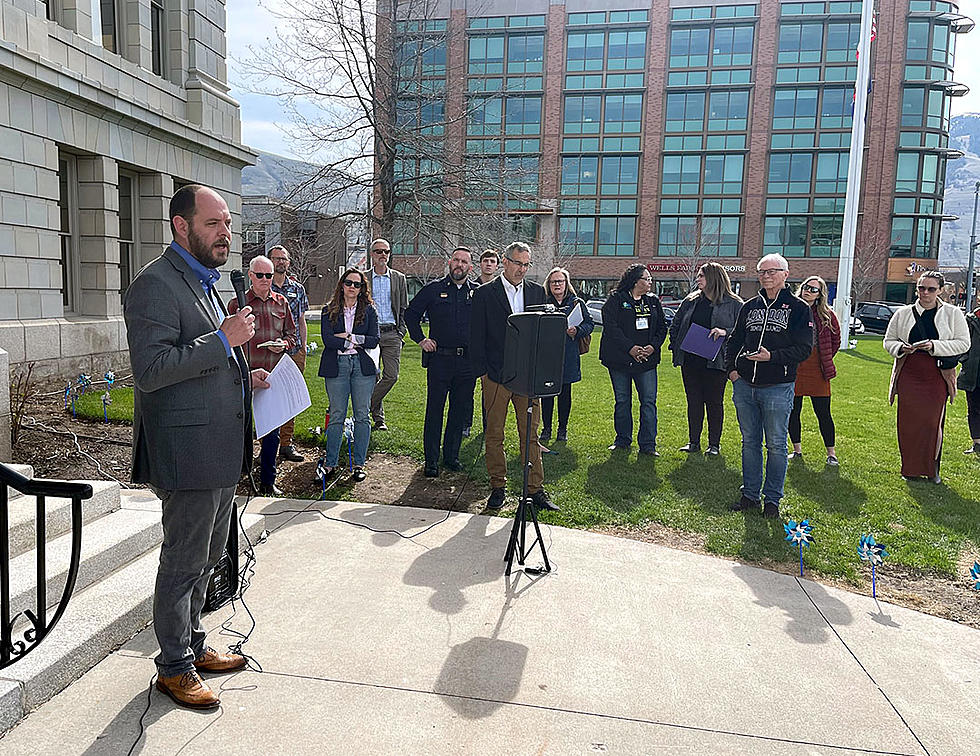
Missoula city budget proposes 9.7% tax increase; $6.3M in new revenue
The city budget includes $6.3M in new revenue and increases taxes by 9.7%; county and state tax increases could add to that
Martin Kidston
(Missoula Current) With an increase in appraisal values across Missoula, the City Council will levy fewer mills to raise more revenue for next year's fiscal budget. It includes $6.3 million in new revenue, bringing the city's total tax-supported revenue to $111 million – up from $105 million last year.
On average, the spending increase will result in a 9.7% tax increase for Missoula property owners. City taxes represent around 30% of a property owner's tax bill and don't reflect any increases proposed by Missoula County or other taxing jurisdictions, including schools and the state.
Mayor Jordan Hess painted his proposed budget as a better outcome than what the Montana Department Revenue sent out earlier this year in notices indicating a much larger local tax increase due to new appraisal values.
“The state notices that went out telegraphing on average a 37% increase, this is in reality what the increase will be,” Hess said of his 9.7% increase. “It's still an increase. It's not a trivial increase. But it's a significantly lower increase than what the state notices received earlier this summer indicated.”
The new budget will levy 40 fewer mills than last year, or a reduction of 12.6%. That's largely due to the state's large increase in appraised values, which amount to more than $11 million in new state revenue in Missoula.
Hess said that state increase is offset by his reduction in mills, though the city is still looking at $6.3 million in new revenue. Much of that is directed toward social services including a second shelter, a Crisis Response Team, a Mobile Support Team, equality and justice, and various subsidized housing programs.
It also sets aside funding for city departments, offers a cost-of-living increase for city employees, recognizes union agreements and funds efforts to streamline development, including housing. Along with the spending increase in the budget, Hess blamed inflation for the bulk of new taxes.
“Inflation is eating us alive at the city,” Hess reiterated on Wednesday. “We're continuing to be met with aggressive cost inflation.”
Also working against the city, Hess said the amount of newly taxable property came in lower than what the city had projected. Despite the building boom in the greater Mullan area and South Hills, the city only netted $1.2 million more in revenue from newly taxable properties.
“We're trying to get some additional data from the state as to why,” said city CAO Dale Bickell.
Despite the tax increase, several City Council members pushed to add additional funding to pay for pet programs, from after school to climate change, and some other bizarre requests.
Council member Carlino introduced the most funding amendments including $100,000 to launch a sustainable building incentives program, which failed. He also sought $50,000 to fund more traffic circles, which was tabled for further discussion, and more than $4,300 to increase the stipend received by council members.
The stipend, which would have taken money from the mayor's salary, failed. It also raised questions from other council members, as well the city attorney. Carlino sought to double from $30 to $65 the amount council members currently receive each month for “communication.”
“You could use post cards for an event or for a tax that's coming. You could print out little pieces of paper for constituents,” he said. “Essentially, I'm trying to increase our communication fund to ensure we have more resources to communicate with our constituents about issues going on at the city level.”
Several council members said the $30 council members currently receive is meant as a partial reimbursement for internet for cell-phone costs. Others said coffee meetings and attending events serve fine.
Several also passed Carlino's request off as a backdoor way to boost City Council pay. They also questioned the legality of a single council member sending post cards with his or her own message to constituents on the taxpayer's dime.
“It's not something we'd want to encourage or allow," said City Attorney Ryan Sudsbury. "I think he (Carlino) is trying to come up on the fly for other uses of that fund. Sending out mailers that advocate for a position would be problematic.”
But while that amendment failed, other amendments adding costs to the budget were either already added or approved, including council member Mirtha Becerra's $40,000 request to fund education around the city's non-discrimination ordinance.
Members of council said the budget couldn't fund all programs, despite their perceived value. They also maintained their criticism of the state's current tax system.
“Residential property taxes are now the draft horses pulling the wagon, and they're not getting a lot of help,” said council member Gwen Jones.
Becerra agreed.
“Keeping (the city's tax increase) to less than double digits, that's only the city's portion,” she said. “We then have the county and all the other taxing jurisdictions. I would caution us and emphasize that we need to be cognizant that while our property taxes are going up less than 10%, that's only the city's portion, not the entire bill residents are going to get.”
